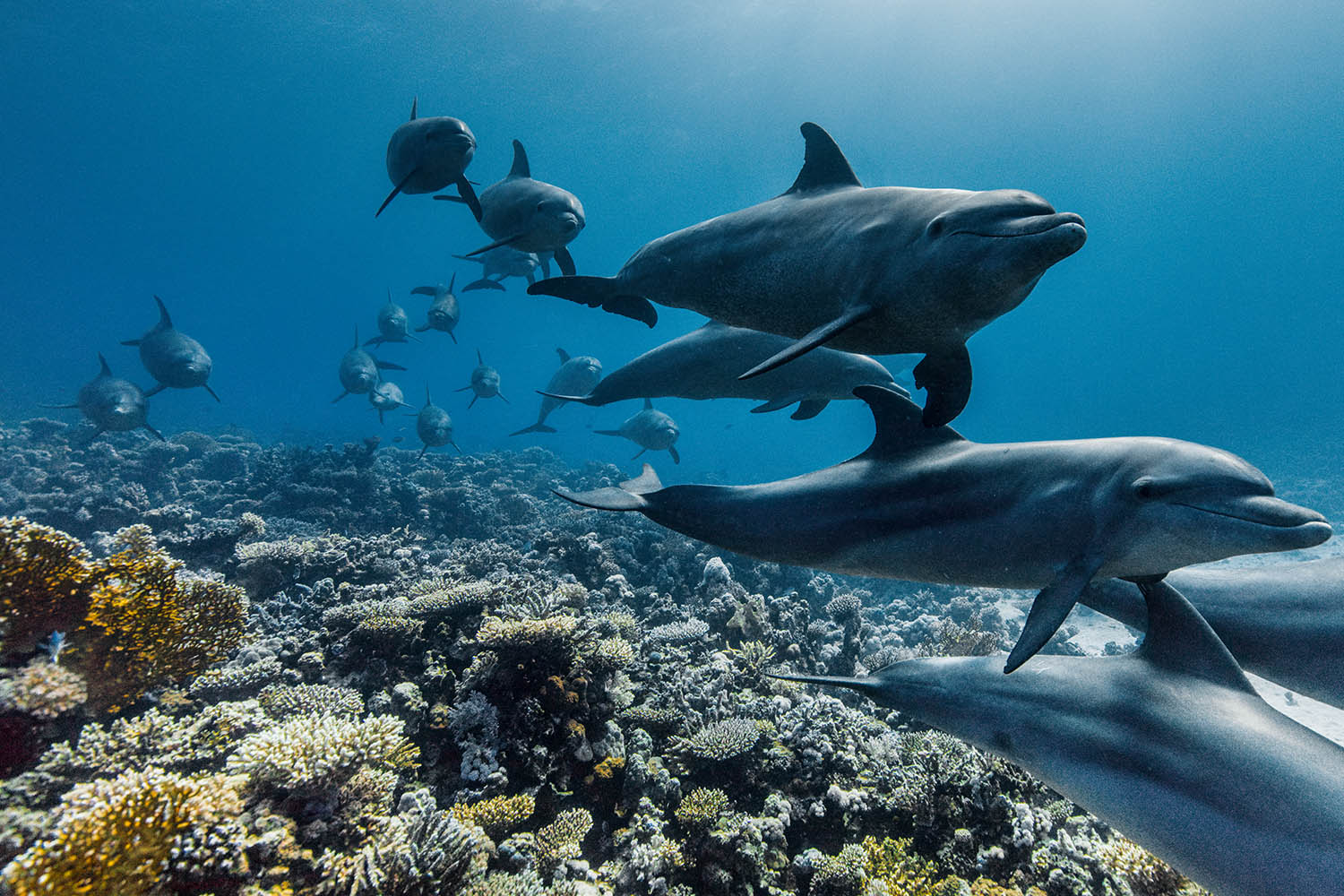The first thing that strikes you is the cinematography. Throughout David Attenborough’s seven-decade-long career as our favourite guide to and champion of the natural world, he has become something of a benchmark for quality.
Since his first presenting job in 1954, as an emergency stand-in on a BBC show entitled Zoo Quest, when one of the experts was taken ill, we have come to associate Attenborough's breathy, earnest enthusiasm with some of the most dazzling and technologically groundbreaking nature photography ever to be committed to a screen, big or small.
But even by the usually high standards of an Attenborough-fronted production, Ocean is a staggering achievement. From lithe, looping shots that seem to place us flank to flank with swimming dolphins, to a camera move that takes us into the quicksilver underwater murmuration of a shoal of tiny fish; from God’s-eye drone sequences that reduce whales to the size of sprats, to extraordinary shots of microscopic phytoplankton lit to look like floating lanterns, virtually every frame is remarkable. The visual bar has been raised, one suspects, to emphasise how very much there is at stake.
This elegant film walks us to an ecological cliff edge but also offers a lifeline of hope
This elegant film walks us to an ecological cliff edge but also offers a lifeline of hope
But the quality of Ocean is not just measured by the wow factor and the spectacle. It is also exceptionally elegant in the structuring and delivery of its central argument. This is film-making which, like the very best of Attenborough’s previous work, and like the magnificent migratory ocean species that provide a recurring motif throughout the film, takes us on a journey. And it's a journey which has only one logical endpoint if we are to protect the oceans and, by extension, the planet.
Ninety-nine-year-old Attenborough has been around long enough to know that climate fear and despair are paralysing and that a sense of collective helplessness is almost as dangerous as denialism. The film walks us to an ecological cliff edge but pulls us back, just as the ground beneath our feet starts to crumble, with a lifeline of hope.
One of the film’s key points is that the unknowable quality of the ocean, its very mystery, is part of what has made it easier for us to turn a blind eye to its abuse and destruction. If somebody drove a bulldozer through a pristine stretch of rainforest, Attenborough suggests by way of illustration, there would be an international outcry. But that’s exactly what happens on a daily basis in the ocean thanks to lack of regulation and industrial bottom-trawling fishing practices.
Through stark before-and-after juxtapositions, Ocean makes clear how much there is to lose. Shots of giant kelp forests, ancient scallop beds off the coast of Arran and undulating seagrass meadows are cut together with scenes of the aftermath of the trawlers – rich, teeming ecosystems reduced to barren, post-apocalyptic mud-scapes. It’s enraging and depressing in equal measure. But, Attenborough stresses, there is still hope, in part due to the ocean’s remarkable capacity to regenerate.
A galvanising, wake-up call of a film from a man whose joy in discovery and passion for the natural world remains undimmed.
Ocean (85 mins, PG) is directed by Toby Nowlan, Colin Butfield and Keith Scholey, and features David Attenborough
Photograph by Olly Scholey
Newsletters
Choose the newsletters you want to receive
View more
For information about how The Observer protects your data, read our Privacy Policy

